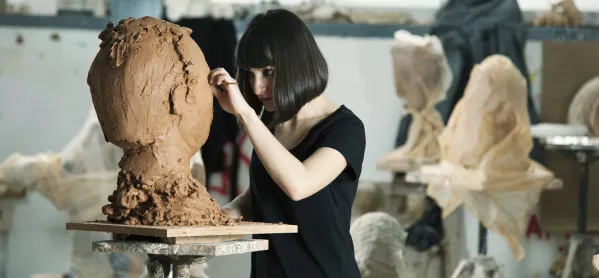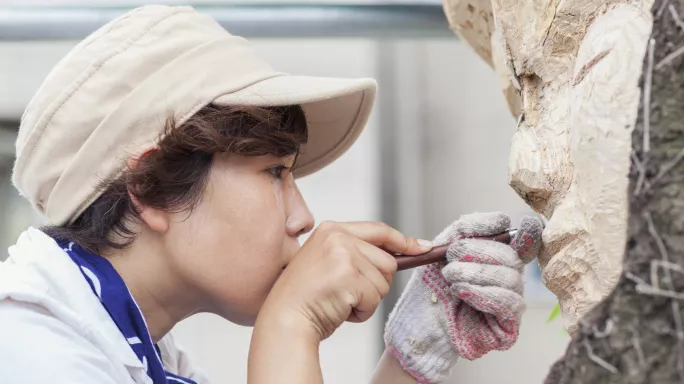
- Home
- You’re never too experienced to learn from observation
You’re never too experienced to learn from observation

Teaching is such an isolated occupation.
That may sound odd, considering that every class involves a community of learners and an act of performance, but it can be rare to glimpse the workings of a classroom that is not one’s own.
And in our own classrooms, we create our realms.
Quick read: Observation feedback: is there another, better way?
Quick listen: Why you have got direct instruction wrong
Want to know more? Teaching greatness requires mentoring and research
Even when we move between rooms to teach, once the door is closed, the space is ours and we control the tone and pace.
It is always vital, therefore, to create opportunities for observation and the sharing of techniques in schools. There must be a commitment to removing the walls and defences of those private realms.
My school, the Phillips Exeter Academy in New Hampshire, US, teaches with the Harkness method, a discussion-based pedagogy developed there in the 1930s.
The approach requires putting aside many of the lessons I absorbed in my first years in the profession, and upending some of the usual markers of good teaching such as planning learning outcomes in advance and controlling the flow of activities throughout the lesson.

A former principal of my school, Lisa MacFarlane, described Harkness as a “pedagogy of humility”, and the phrase has stayed with me. The role of the teacher in a classroom here is much less performative than in a classroom where the desks and the audience face the front of the classroom.
Here, I have no front of the room. In my classroom, the large oval table contains no corner, no back row, no obscured sight lines. The 12 students and I sit together, and we all face the centre of the table.
We have an internship programme for younger teachers who have just completed their undergraduate studies and are considering a career in boarding schools, but the majority of our teachers come to us with a significant amount of experience in the classroom.
Learning curve
This experience is enormously valuable to us, and yet all teachers new to our community face a learning curve when they enter our classrooms.
We have created a variety of mentoring and training methods to help ease that transition, from formal and informal mentoring to teacher workshops on our campus.
New teachers at Exeter undergo a four-year probationary period before being awarded continuing appointment, and not every new teacher makes the cut.
During that time, they work with a mentor to learn the ropes, observe classes, conferences, grading and report writing.
The relationship is more formal in the first two years, but even after 15 years I still know that my mentor’s door is open to me, and she is my first port of call with a paper or class that needs some unpacking.
Other members of the relevant department observe classes and paper grading in those early years, and the visits are very often reciprocal.
Facing facts
It was in visiting more experienced colleagues’ classes that I learned the toxic power of my own facial gestures and head nods.
Students cannot move beyond looking for adult affirmation of their ideas if the adult is nodding, frowning or smiling at the table, as we are instinctively wont to do in an attempt to encourage students to speak up.
If the teacher’s face is a map of her response, no wonder that students attempt to read the map as they go.
If the teacher looks away from the speaking student towards the rest of the class, the speaker is more likely to turn attention to the response of peers, and is in turn more likely to receive a response from them.
I am not suggesting that a teacher must remain in a state of serene repose at all times, but I certainly notice much more ownership of the discussion in my classes when I avoid attracting the gaze of the students.
At times I will map the flow of the conversation from student to student, or the content of the discussion for use in summary, and this note-taking pulls me out of the student conversation in a way that increases their ownership.
Channel changing
I still model attentive, engaged listening, but I try not to be the channel for all of the commentary.
I learned from my colleagues how to pace my classes by asking whether silences were an indication of being finished with a topic or being so deep in thought that more time was needed and how to model types of discussion contributions such as questioner, evidence provider, linker.
I learned how to synthesise information by summarising my discussion notes so students understand how far they have taken their understanding and how to perform that kind of humility that places ownership of understanding in the hands of the group, not the pronouncements of the instructor.
Eimer C Page is an instructor in English and director of global initiatives at Phillips Exeter Academy in New Hampshire, US
Register with Tes and you can read five free articles every month, plus you'll have access to our range of award-winning newsletters.
Keep reading for just £4.90 per month
You've reached your limit of free articles this month. Subscribe for £4.90 per month for three months and get:
- Unlimited access to all Tes magazine content
- Exclusive subscriber-only stories
- Award-winning email newsletters
You've reached your limit of free articles this month. Subscribe for £4.90 per month for three months and get:
- Unlimited access to all Tes magazine content
- Exclusive subscriber-only stories
- Award-winning email newsletters



